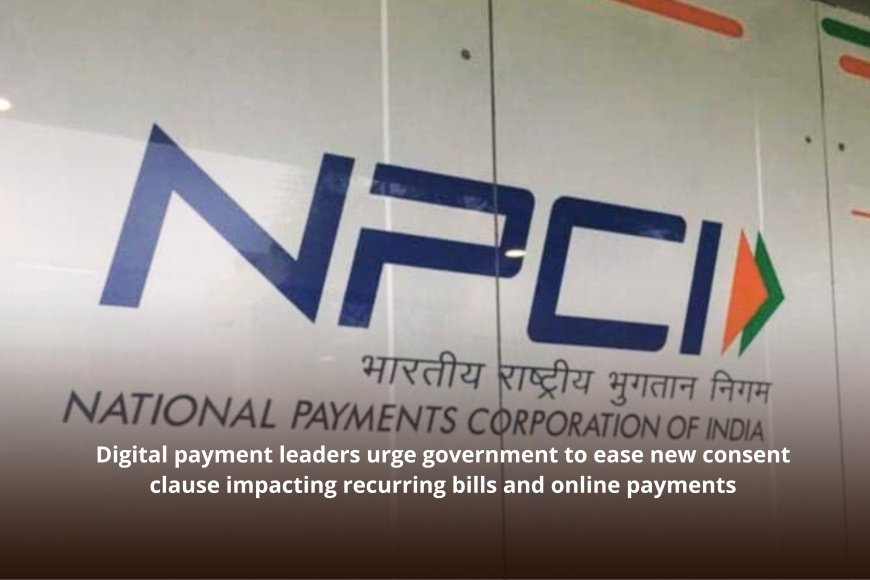Digital payment leaders urge government to ease new consent clause impacting recurring bills and online payments
Major digital payment firms and NPCI have asked the government to delay strict DPDP Act consent rules, warning they could disrupt recurring payments, raise costs, and create challenges for smaller startups and businesses.

Google Pay, PhonePe, and Amazon Pay belong to the most prominent digital payment providers in India.These companies, along with the National Payments Corporation of India (NPCI), have submitted a request to the government, requesting that certain regulations stated in the new Digital Personal Data Protection (DPDP) Act be loosened upon.
According to the rule that they are concerned about, users are required to provide their complete and clear consent for each and every transaction. Especially for recurrent payments such as electricity bills, OTT subscriptions which are typically collected automatically after the initial permission, these companies feel that this will make digital payments more complicated and pricey.
During discusses that took place the previous week, companies presented the proposal to the Ministry of Electronics and Information Technology (MeitY). According to those who are familiar with the situation, the new rule has the potential to disrupt the payment systems that are now in place and cause users to experience unnecessary delays.
Following a single approval, regular payments are currently functioning without any problems. However, according to with the new law, each and every deduction would require newly obtained authorisation from the user.These results in additional processes, increased authentication, and increased costs associated with operations.
While it's possible that big businesses will be able to adapt to these developments, smaller companies might have to contend with significant barriers. It may be difficult for them to modernise their systems and are unable to afford the additional costs.They might even be taken out of the market or their growth could be slowed down as a result of this.
It is also unclear how exactly the regulation needs to be applied, which is another source of misunderstanding. At this point, it appears that the government and industry do not have a fully coordinated representation of the situation. Experts believe that this situation is comparable to the debate that took place earlier over "data localisation," in which there were disparities in the perspectives of each side regarding the matter.
According to Section 17(5) of the DPDP Act, the government has the authority to exclude particular businesses from certain regulations for a short time period (up to five years).This exception is something that payment businesses want so that they can have more time to find out alternative solutions that safeguard customer data while also ensuring that digital transactions are hassle-free and uninterrupted.
Smaller businesses that rely on the UPI network are a particular worry for the National Payments Corporation of India (NPCI), which oversees the network. Should the costs of compliance increase, businesses may choose to pass those costs on to customers, thereby diminishing the appeal of digital payment methods.
In simple terms, the payment industry is not opposed to the protection of user data, rather they are seeking regulations that do not make the process of dealing with everyday transactions more difficult for individuals or more expensive for businesses, particularly those that are smaller.
Information referenced in this article is from The Economic Times







